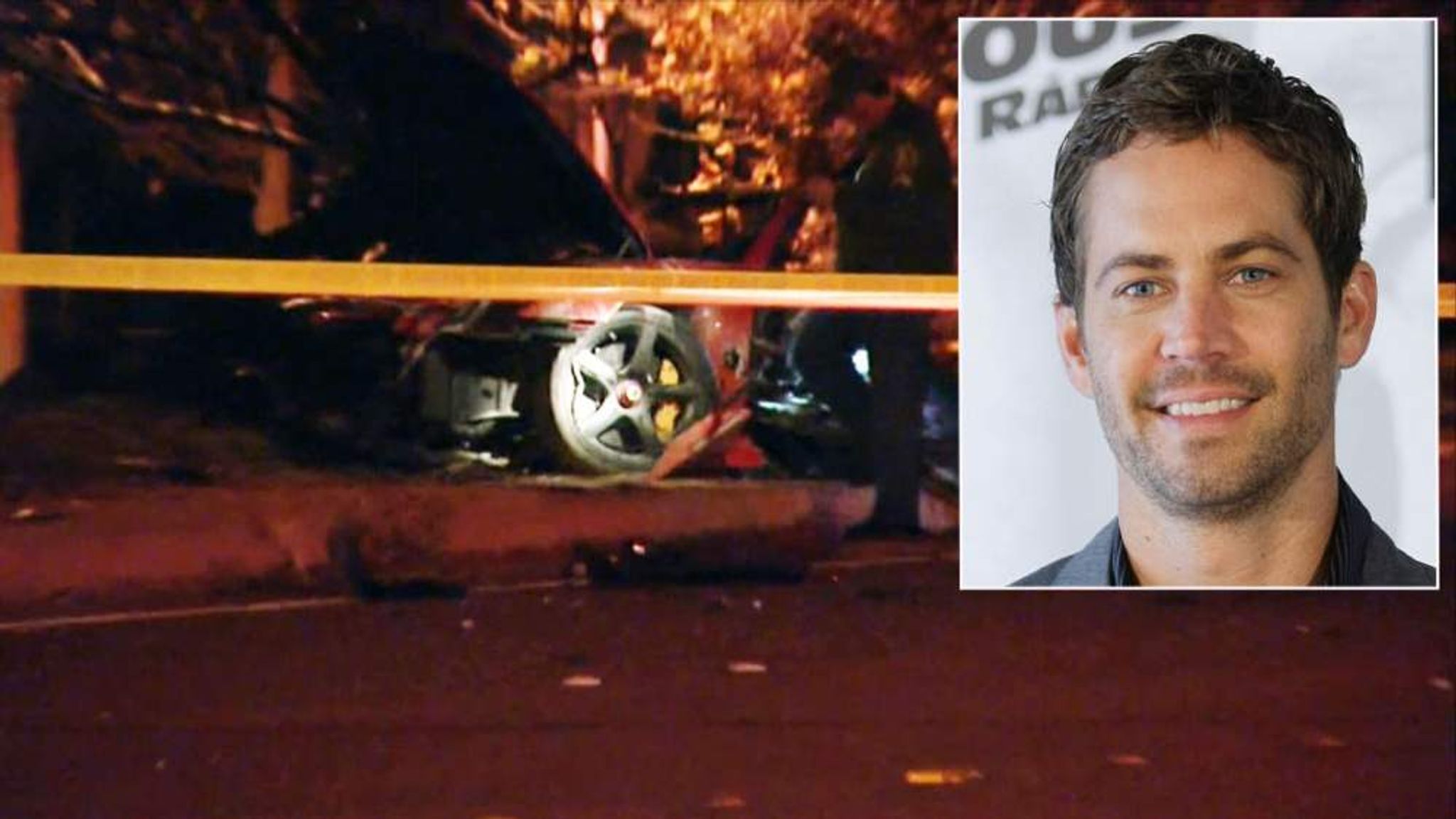Paul Walker, the beloved actor known for his role in the Fast & Furious franchise, tragically passed away in a car accident in 2013. However, over the years, rumors have surfaced claiming that Paul Walker was found alive. These rumors have sparked widespread curiosity and debate, leading many to question the validity of such claims. In this article, we will delve deep into the origins of these rumors, examine the evidence, and provide a comprehensive analysis of the situation. By the end, you’ll have a clear understanding of whether there is any truth to the claim that Paul Walker was found alive.
Paul Walker's untimely death left a void in the hearts of millions of fans worldwide. His charisma, talent, and humanitarian efforts made him a role model for many. Yet, the internet has been rife with conspiracy theories, fake news, and misinformation surrounding his death. These rumors not only confuse fans but also raise questions about the reliability of online information. Understanding the truth is crucial, especially when it comes to topics that affect people's emotions and perceptions.
In this article, we will explore the origins of the "Paul Walker found alive" rumors, analyze the evidence (or lack thereof), and provide expert insights into why such conspiracy theories gain traction. We’ll also discuss the importance of verifying information before sharing it and how to differentiate between credible sources and unreliable ones. By the end of this article, you’ll be equipped with the knowledge to separate fact from fiction and make informed decisions about the information you consume online.
Read also:Unveiling The Wealth Of History Genghis Khan Net Worth And Legacy
Table of Contents
Paul Walker's Biography
Paul William Walker IV was born on September 12, 1973, in Glendale, California. He began his acting career at a young age, appearing in television commercials and shows such as "Highway to Heaven" and "Who’s the Boss?" His breakthrough role came in 1998 with the film "Pleasantville," which earned him critical acclaim. However, it was his role as Brian O'Conner in the "Fast & Furious" franchise that catapulted him to international fame.
Walker was not only an actor but also a passionate philanthropist. He founded the charity organization Reach Out Worldwide (ROWW) in 2010, which provides rapid disaster relief to communities in need. His commitment to helping others was evident in both his professional and personal life. Tragically, Walker's life was cut short on November 30, 2013, when he died in a car accident in Santa Clarita, California.
Paul Walker's Personal Information
| Full Name | Paul William Walker IV |
|---|---|
| Date of Birth | September 12, 1973 |
| Place of Birth | Glendale, California, USA |
| Date of Death | November 30, 2013 |
| Profession | Actor, Philanthropist |
| Notable Works | Fast & Furious franchise, Pleasantville |
The Origins of the "Paul Walker Found Alive" Rumors
The rumors claiming that Paul Walker was found alive began circulating shortly after his death. These rumors gained momentum due to the shock and disbelief surrounding his passing. Many fans found it difficult to accept the loss of their favorite actor, leading to the spread of conspiracy theories. One of the most common claims was that Walker faked his death to escape the pressures of fame and live a quiet life away from the public eye.
Another theory suggested that Walker’s death was staged as part of a government conspiracy. Proponents of this theory pointed to alleged inconsistencies in the accident report and speculated that Walker was targeted for his humanitarian work. While these claims lack credible evidence, they gained traction on social media platforms and conspiracy theory websites, where misinformation often spreads unchecked.
Why These Rumors Persist
- Fan Denial: Many fans struggled to come to terms with Walker’s death, leading them to cling to the hope that he was still alive.
- Sensationalism: Media outlets and websites often prioritize sensational stories to attract clicks and engagement, perpetuating baseless rumors.
- Lack of Awareness: Some individuals may not be aware of the facts surrounding Walker’s death and are more susceptible to believing false information.
Examining the Evidence
Despite the widespread rumors, there is no credible evidence to support the claim that Paul Walker was found alive. The official investigation into his death concluded that Walker died in a car accident caused by excessive speed. The Porsche Carrera GT he was traveling in collided with a tree and burst into flames, leaving no room for doubt about the tragic outcome.
Forensic experts, law enforcement agencies, and eyewitnesses all confirmed the details of the accident. Walker’s family and friends also publicly mourned his passing, further dispelling any notion that his death was staged. The lack of concrete evidence supporting the "Paul Walker found alive" rumors underscores the importance of relying on verified information.
Read also:Duke Dennis Height Unraveling The Mystery Behind The Popular Content Creator
Why Conspiracy Theories Gain Traction
Conspiracy theories often thrive in environments where emotions run high and trust in institutions is low. The death of a public figure like Paul Walker creates a vacuum of uncertainty, which conspiracy theorists exploit to spread misinformation. These theories appeal to individuals who are skeptical of official narratives or who seek alternative explanations for events they find difficult to accept.
Additionally, social media platforms amplify the reach of conspiracy theories by enabling rapid sharing and engagement. Algorithms prioritize content that generates high levels of interaction, regardless of its accuracy. This creates a feedback loop where false information spreads faster than the truth, making it challenging for credible sources to counteract misinformation.
The Impact of Fake News on the Internet
Fake news and misinformation have become pervasive issues in the digital age. The internet provides a platform for anyone to share information, regardless of its accuracy or credibility. This democratization of information has its benefits, but it also poses significant risks, particularly when it comes to topics that affect people’s emotions and well-being.
In the case of Paul Walker, the spread of false rumors about his death caused unnecessary pain and confusion for his fans and loved ones. It also highlighted the dangers of consuming information without verifying its source. The internet’s role in amplifying misinformation underscores the need for individuals to develop critical thinking skills and exercise caution when encountering sensational claims.
The Importance of Fact-Checking
Fact-checking is a crucial tool for combating misinformation and ensuring the accuracy of information. By verifying claims against credible sources, individuals can avoid falling victim to false narratives and conspiracy theories. Fact-checking organizations such as Snopes, FactCheck.org, and PolitiFact play a vital role in debunking myths and providing reliable information to the public.
When evaluating the claim that "Paul Walker was found alive," it’s essential to consult official reports, expert analyses, and statements from reputable sources. These sources consistently confirm that Walker died in a car accident, leaving no room for doubt about the validity of the rumors. Fact-checking not only helps individuals make informed decisions but also promotes a culture of accountability and transparency.
How to Identify Trustworthy Sources
In an era of information overload, identifying trustworthy sources is more important than ever. Here are some tips for distinguishing credible sources from unreliable ones:
- Check the Author: Look for articles written by experts or individuals with relevant qualifications.
- Examine the Publication: Reputable publications adhere to strict editorial standards and prioritize accuracy.
- Verify the Information: Cross-reference claims with multiple sources to ensure consistency.
- Look for Citations: Reliable sources often provide references and links to support their claims.
- Avoid Sensationalism: Be wary of headlines or content designed to provoke strong emotional reactions.
The Emotional Impact of Misinformation
Misinformation can have profound emotional consequences, particularly when it involves sensitive topics like the death of a loved one or public figure. For Paul Walker’s fans, the rumors claiming he was found alive created false hope and prolonged the grieving process. This highlights the ethical responsibility of content creators and platforms to prioritize accuracy and empathy when sharing information.
Moreover, misinformation can erode trust in institutions and media outlets, making it harder for individuals to discern fact from fiction. Addressing this issue requires a collective effort from governments, tech companies, and individuals to promote media literacy and combat the spread of fake news.
Conclusion
The claim that "Paul Walker was found alive" is a baseless rumor that lacks credible evidence. While the rumors may stem from fans’ unwillingness to accept his death or the allure of sensational stories, they ultimately do a disservice to Walker’s legacy and the truth. By examining the facts and relying on trustworthy sources, we can dispel these myths and honor Walker’s memory in a meaningful way.
We encourage you to approach information with a critical eye and prioritize fact-checking before sharing or believing sensational claims. If you found this article helpful, please consider leaving a comment or sharing it with others. For more insights into topics that matter, explore our other articles and join the conversation about media literacy and responsible information consumption.

